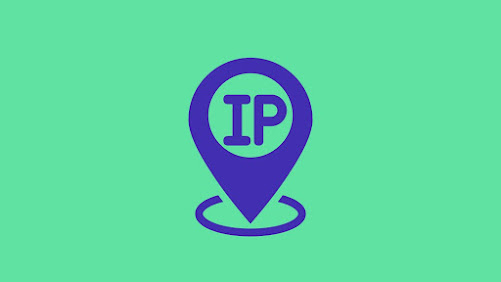Whats IP means?
(Internet Protocol)
Internet Protocol (IP) is the method or protocol by which data is sent from one computer to another on the internet. Each computer -- known as a host -- on the internet has at least one IP address that uniquely identifies it from all other computers on the internet.
Why is IP used?
In essence, IP addresses are the identifier that allows information to be sent between devices on a network: they contain location information and make devices accessible for communication. The internet needs a way to differentiate between different computers, routers, and websites.
WHAT IS MY IP
As we navigate through the internet, we often come across the term "IP address." An IP address, short for Internet Protocol address, is a unique identifier assigned to each device connected to a network. It serves as a means of communication between devices on the network and allows them to send and receive data.
When we search "What is my IP?" on a search engine, we are looking for information about our device's IP address. Your IP address can provide information about your location, internet service provider (ISP), and the type of device you're using. Knowing your IP address can also be useful for troubleshooting network issues and setting up secure connections.
To find your IP address, there are several methods you can use. The most common way is to simply type "What is my IP?" into a search engine, and it will display your IP address. Alternatively, you can check your network settings or use an IP address checker website.
There are two types of IP addresses - IPv4 and IPv6. IPv4 is the older version of the protocol and uses a 32-bit address, while IPv6 uses a 128-bit address. IPv6 was created to provide more unique addresses to accommodate the growing number of devices connected to the internet.
In terms of security, your IP address can be used to track your online activity and potentially compromise your privacy. Websites can use your IP address to collect information about your browsing habits and target you with personalized ads. Hackers can also use your IP address to launch attacks against your device or network.
To protect your privacy, you can use a virtual private network (VPN), which encrypts your internet traffic and hides your IP address. This makes it more difficult for websites and hackers to track your online activity.
In conclusion, your IP address is a crucial component of your online identity. It allows devices on the network to communicate with each other and can provide information about your location and device type. However, it can also be used to track your online activity and potentially compromise your privacy. By using a VPN, you can protect your privacy and keep your online activity secure.





No comments:
Post a Comment
Dear [Blogger's name],
I recently stumbled upon your blog and I must say, I'm impressed! Your writing style is engaging and informative, and your content is always up-to-date and relevant. I especially enjoyed your latest post on [topic of the post], which provided valuable insights into [what the post covered].
Your blog has become one of my go-to resources for [related topics], and I always look forward to reading your latest posts. Keep up the great work, and please continue to share your knowledge and expertise with us.
Thank you for creating such a valuable resource for [your audience], and I look forward to reading more from you in the future.
Best regards,
[Your Name]